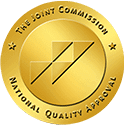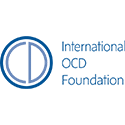
Contact WayPoint Academy today to learn how our specialized anxiety treatment program can guide your teen towards a brighter, more fulfilling future.
Understanding the Connection Between Anxiety and Depression
Anxiety and depression frequently occur together, and this is not a coincidence. It is important to understand the interconnected relationship between the two.
- Shared Top Spot: Depression, anxiety, and behavioral disorders are the most common mental health challenges adolescents face. This significant overlap indicates that many teenagers might be grappling with both conditions.
- Frequent Companions: Individuals diagnosed with depression often also have anxiety disorders, highlighting their tendency to co-occur.
- Overlapping Symptoms: Anxiety and depression can share similar symptoms, including abrupt mood swings, making it challenging to distinguish between the two, especially during adolescence.

Several factors contribute to this close relationship between anxiety and depression:
- Common Ground: Many risk factors are shared between both conditions. Genetics, trauma, and challenging environments all increase a teen's vulnerability to anxiety and depression.
- Brain Chemistry Connection: Imbalances in key neurotransmitters, like serotonin and norepinephrine, disrupt mood regulation and the body's stress response system. These shared biological underpinnings contribute to their frequent co-occurrence.
- A Vicious Cycle: Anxiety and depression can feed into each other, creating a downward spiral. Anxiety can trigger excessive worry and rumination, leading to depressive symptoms, while hopelessness and worthlessness associated with depression can worsen anxiety.
- Coping Gone Wrong: Unhealthy coping mechanisms, such as substance abuse, can exacerbate both anxiety and depression. This underscores the importance of addressing coping strategies in treatment for either condition.
When addressing either condition in teenagers, it is essential to consider the potential presence and influence of the other. This understanding helps develop comprehensive support and intervention strategies that effectively address the complex mental health challenges faced by teens today.
Statistics of Anxiety and Depression in Teens
Mental health challenges, such as anxiety and depression, are more common among teenagers than many realize. While statistics offer a glimpse of the problem, the true numbers may be higher due to underreporting and diagnostic challenges. Below are key figures highlighting these conditions' prevalence and impact on teens.
- One in seven (14%) 10-19-year-olds, globally, experience mental health conditions.
- This accounts for 15% of the global burden of disease in this age group.
- Depression affects an estimated 1.4% of 10–14-year-olds and 3.5% of 15–19-year-olds.
- Anxiety disorders are the most prevalent, affecting an estimated 4.4% of 10–14-year-olds and 5.5% of 15–19-year-olds.
- Around 3.2 million teenagers in the United States aged 12-17 (13.3%) had at least one major depressive episode in 2017.
- Suicide is the third leading cause of death among those aged 15-29 years old globally.
Depression and anxiety are the most common mental health concerns among teens, often occurring together. Their widespread impact underscores the need for early intervention and support, which can help teens overcome these challenges and lead healthier, more fulfilling lives.
Common Signs and Symptoms of Anxiety and Depression in Teens
Teens with anxiety and depression can experience a range of signs and symptoms. Parents need to be aware of these symptoms so that they can intervene early and provide their child the support that they need.
Symptoms of Depression in Teens:
- Irritability: Increased irritability and lower stress tolerance.
- Relationship Problems: Difficulty getting along with family and friends.
- Loss of Interest: Disinterest in hobbies, sports, or social events.
- Inability to Concentrate: Trouble focusing on tasks or conversations.
- Sleep Changes: Insomnia or excessive sleeping.
- Low Energy: Fatigue even after adequate rest.
- Excessive Dieting: Unhealthy focus on weight loss.
- Self-Harm: Engaging in cutting, burning, or other self-injury.
- Substance Use: Turning to alcohol, drugs, or smoking to cope.
- Sadness and Hopelessness: Feelings of despair and worthlessness.
- Suicidal Thoughts: Thoughts of self-harm or suicide, needing immediate help.
Symptoms of Anxiety in Teens:
- Social Anxiety: Fear of social situations, avoiding gatherings, or physical symptoms like sweating or trembling.
- Fear of the Future: Worry about identity, success, or uncertainty.
- Panic Attacks: Sudden episodes of intense fear with physical symptoms like a racing heart or dizziness.
- Excessive Worry: Constant concern about social, academic, or future issues.
- Irritability: Heightened irritability and stress sensitivity.
- Withdrawal: Isolating from family and friends.
- Difficulty Concentrating: Worry interfering with focus on tasks.
Factors Contributing to Depression and Anxiety in Teens
Understanding the factors that contribute to depression and anxiety in teens can help parents identify underlying causes, which will help them find the right support for their child.
- Genetics: A family history of mood or anxiety disorders increases risk.
- Trauma and Adversity: Stressful events like abuse, bullying, or family conflicts.
- Environmental Factors:
- Social Environment: Peer pressure, social acceptance, and fitting in.
- School Environment: Academic pressures, performance expectations, and bullying.
- Home Environment: Family conflicts, neglect, parental mental health, and financial instability.
- Brain Development and Chemistry:
- Brain Circuitry: Changes in brain circuits can heighten stress.
- Neurotransmitters: Imbalances in dopamine, serotonin, and norepinephrine.
- Substance Misuse: Drug and alcohol use can worsen mood and mental health.
- Hormonal Changes and Puberty:
- Mood Swings: Hormonal fluctuations affecting mood.
- Body Image: Puberty-related physical changes and body image concerns.
- Negative Thought Patterns: Pessimistic outlook influenced by environment.
- Social and Global Issues: Awareness of issues like climate change, social injustice, and political unrest.
- Lack of Emotional Support: Limited support from family, friends, or trusted adults.
- Chronic Illness and Other Challenges: Health issues, learning disabilities, and other stressors.
Is it normal teenage behavior or is it something else? These assessments may help you know how much your teen's and family's life are being affected by anxiety.
How Can Residential Treatment Help Your Teen With Anxiety and Depression?
Specialized Treatment for Anxiety and Co-occurring Disorders
WayPoint Academy provides your teen with effective treatment for anxiety disorders, including generalized anxiety, social anxiety, panic disorder, obsessive-compulsive disorder, and school refusal. Since anxiety often accompanies depression, WayPoint treats both conditions together, ensuring your teen addresses the root causes and experiences relief from both. This integrated approach helps your teen heal more fully and supports their ability to thrive in everyday life.
A Holistic and Integrated Approach
At WayPoint Academy, your teen benefits from a comprehensive treatment plan that goes beyond just therapy. With a fully accredited on-site high school program tailored to their needs, they receive personalized academic support that reduces school-related anxieties and sets them up for success. The program also includes physical fitness, nutrition, and hands-on activities like outdoor adventures and team-building exercises. These elements work together to enhance your teen’s emotional resilience, boost their confidence, and foster lasting well-being both during and after treatment.
Family-Centered Care and Support
Your family plays a crucial role in your teen’s journey to wellness. At WayPoint, you are actively involved in the treatment process through weekly family therapy, parent education classes, and ongoing communication with your teen’s treatment team. Parent support groups and the online Parent Portal keep you connected and informed, giving you the tools to continue supporting your teen’s growth at home. This collaborative approach strengthens family bonds and ensures your teen’s continued progress long after treatment ends.
To get started, call 435-562-5800 or email [email protected]. We're here to listen, answer your questions, and provide the support your family deserves.

Backed by The Joint Commission which ensures programs adhere to the highest quality of clinical and medical practices.

Designated as a NATSAP Research Program, showing our commitment to well-researched practices in our program.

Full member of the National Association of Therapeutic Schools and Programs (NATSAP), which ensures regulation of programs that serve children and adolescents.

This program is proud to be Cognia Accredited. Cognia provides accreditation to schools that have earned recognition for their reputation and high educational standards.

WayPoint Academy is fully licensed in the state of Utah.

Waypoint Academy is a certified Student and Exchange Visitor Program (SEVP), allowing us to welcome and support international students.

Full Member of the International OCD Foundation, which ensures our staff has access to the most up-to-date OCD treatment practices and research.

Founding member of Choose Mental Health, guiding families with questions about mental health.

